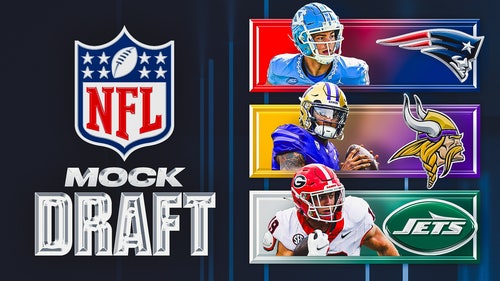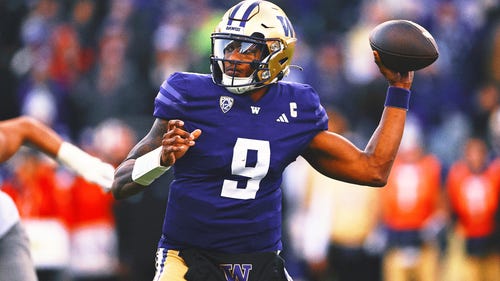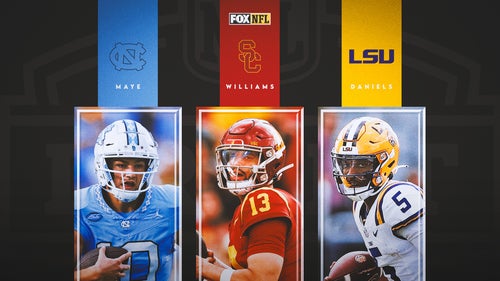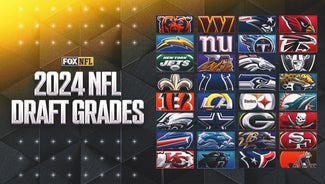
How does new CBA affect offseason?
Peyton Manning would much rather throw to his wide receivers at Denver Broncos headquarters than being forced to use nearby parks and high schools.
Manning, though, has himself and the cause he supported to blame for this inconvenience.
The star quarterback was one of 10 NFL players to place their names on the 2011 NFL Players Association lawsuit filed against the league when labor negotiations deteriorated. As part of the new collective bargaining agreement that was finally completed last July, the structure of offseason programs has radically changed.
The NFL Players Association successfully pushed for rules that would prohibit some of the heavy demands — spoken or inferred — being placed upon its members during “voluntary” workouts. The charge was led by legitimate concerns that the offseason was becoming anything but off. Coaches annually pushed players in classrooms, conditioning and on-field sessions for nearly four months before training camps opened in late July.
That grind is over.
For teams with returning head coaches or 2011 interim replacements who were later named to the position such as Kansas City’s Romeo Crennel, the workouts and Xs-and-Os sessions that would have normally begun by now can’t start until April 16. First-year head coaches can begin working with their players on Monday.
Both sets of coaches face greater restrictions than in the past and stern NFL fines if they don’t comply. Programs can no longer be run more than four days a week or on weekends. Players also must be eased into on-field work.
For the first two weeks, only strength and conditioning coaches are allowed to work with players on the field. Quarterbacks can throw to their wide receivers, but defensive backs aren’t allowed to cover them.
These restrictions continue for the next three weeks until after the NFL draft when coaches are allowed to conduct limited football workouts. Any type of offense vs. defense drill is banned.
The final four weeks that fall under the CBA’s phase three heading are more customary but still curtailed compared to previous offseason work. Teams can hold one minicamp and 10 organized team practice activity sessions. One-on-one drills between offensive and defensive players are not permitted, although special teams can be practiced provided there is no contact. Helmets are allowed but shoulder pads remain outlawed.
NFL Players Association executive George Atallah explained the impetus behind the offseason overhaul last week at the union’s annual meeting in Marco Island, Fla.
“You want to extend that player’s career so he has greater earning potential,” Atallah said. “The offseason, at the very minimum, would give your body a chance to rest. At a maximum, it would either give a player the chance to go back to school and get a college degree, do internships and those sorts of things.”
While those are noble causes, some players, ranging from household names such as Manning to reserves fighting for a job, are paying the price.
Like other veterans who have changed teams, Manning said he wanted to quickly become acclimated to his new surroundings earlier this month during an introductory news conference. Manning also hoped to begin immediately training with Denver’s strength and conditioning coaches.
That’s a no-no. While he can physically rehabilitate from his neck surgery at the team’s facility, the new CBA states that strength coaches can only “supervise use of the weight room to prevent injury and to correct misuse of equipment.” Offering specific training tips, conducting group workouts and the like is prohibited.
Manning also can’t conduct passing drills with his new teammates at Broncos headquarters. That’s why Manning headed to a local school earlier this week to throw.
“I know Peyton wanted to get out there and work with his strength and conditioning coaches right away,” Atallah said. “We put in a rule to prevent that from happening. Why? Those workouts don’t just turn into playbook reads. Guys are going to want to get out there. Once they get on the field, the competitive side of you comes out, and you’re going to want to play full speed.”
Atallah doesn't think a reduction in offseason programs will affect the quality of football played during the regular season. He said that wasn’t the case after all sessions were canceled in 2011 because of the player lockout.
“With respect to anybody that says that’s going to hurt the game, I didn’t see play drop off at all this past year,” he said.
Arizona kicker and player representative Jay Feely can see both sides of the offseason workout debate. All specialists are barred from kicking or punting at team facilities until the third week of offseason work.
Feely admits having to split the crossbars at a local high school isn’t an ideal situation. But he also said revisions in offseason rules were necessary “to keep coaches from taking advantage of players.”
“A coach could go to a young quarterback and say, ‘If you want to make this team, you need to be in there every day. You need to be throwing,’ and put pressure on him even when it’s not necessarily allowed or mandated,” said Feely, an 11-year NFL veteran who has played with five teams.
“There are some coaches who would do that and some who wouldn’t. It’s a delicate balance.”
Tennessee Titans head coach Mike Munchak doesn’t think it will be easy to find such balance and the bottom half of the roster will suffer most. As the franchise’s offensive line coach from 1997 to 2010, Munchak would spend March and April working almost exclusively with backups who needed grooming before returning his focus to the starters later in the offseason.
“The 25 or 30 guys who didn’t get that much attention during the season, that was the time when they got a lot of one-on-one with the coaches,” Munchak said Tuesday at the NFL owners meeting in Palm Beach, Fla. “That’s where you saw guys really develop. You would (later) ask, ‘How did this guy get so much better?’
“That’s where a lot of my guys developed. I was able to give them a lot of that time and technique work where there’s only two or three guys out there (on the practice field) and you were going through footsteps, footwork and taking your time. I think that part is lost.”
Whether it will get found again remains in question. There will be no changes to the new offseason rules in 2012 because the NFLPA wants to see how effective they are.
“There’s nothing this union is going to do that’s going to risk the health and safety of our players,” Atallah said. “After the first year, are we going to talk about rolling back the rules we put into place? No. We just need to figure out if there are ways that we can evolve what we agreed to without giving up the real spirit of health and safety.”
Said Feely: “We don’t want to give back the things we’ve won, but we also want to provide the right working environment for guys to get better.”
George Atallah, Jay Feely and Mike Munchak were interviewed by Alex Marvez and co-host Jim Miller on Sirius XM NFL Radio.















































































































































